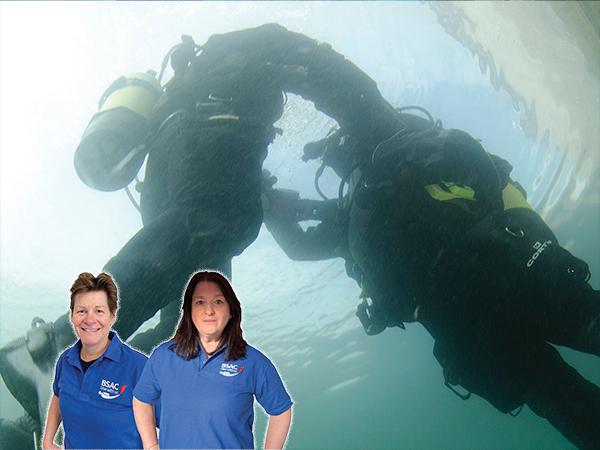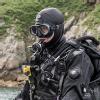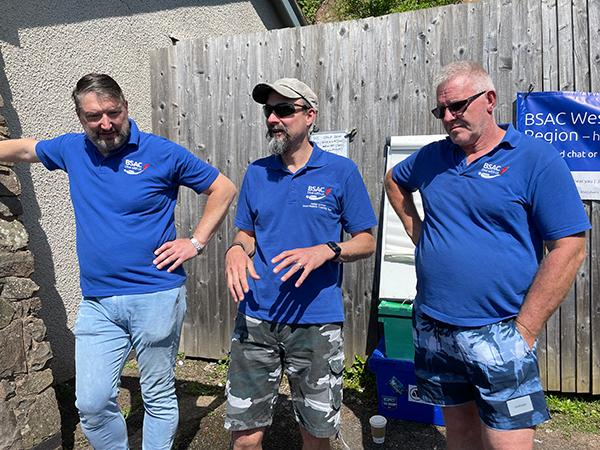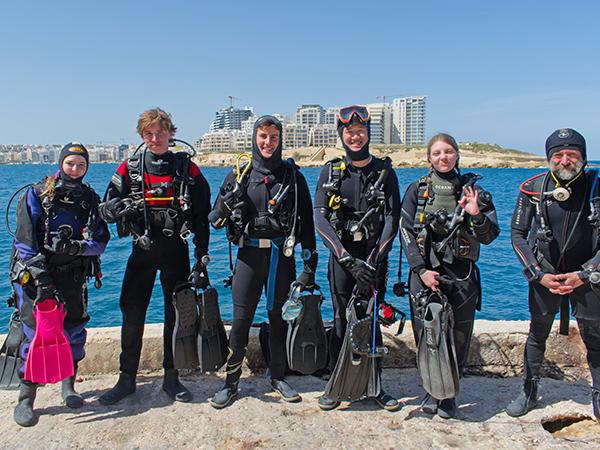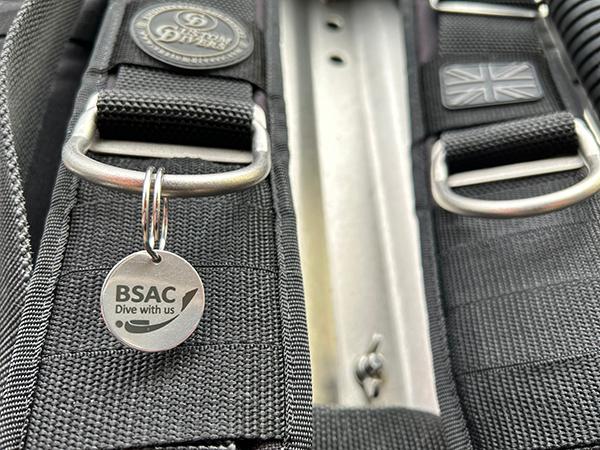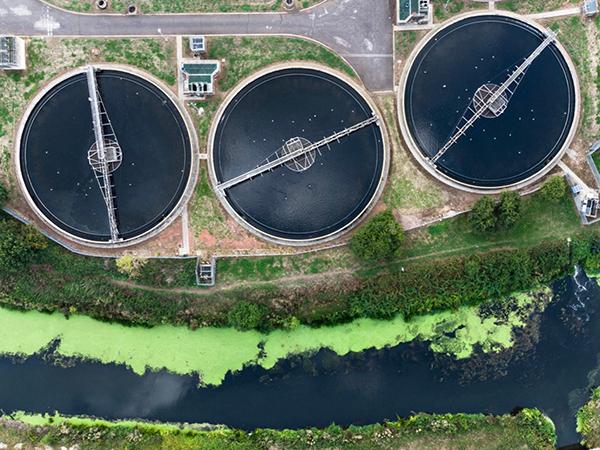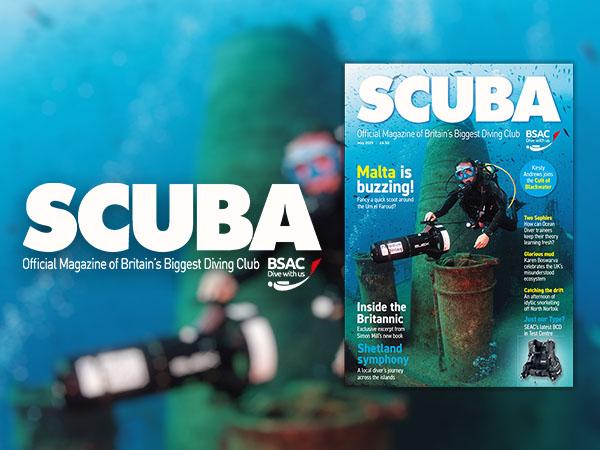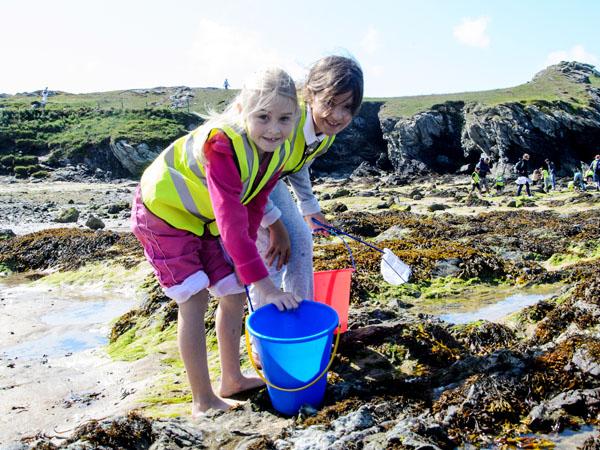BSAC's Annual General Meeting (AGM) will be hosted online on Saturday 14 May at 10:00 this year. We hope to see you there!
Navigation
- Membership and fees, strategy and governance
- Membership benefits
- Club support
- Safety and medical advice
- Diving and training
Membership and fees, strategy and governance
Why does practically everyone refer to scuba diving as a "sport" when there is NO competitive element, whatsoever, in scuba diving (which would define a "sport")? It should be referred to as an "activity" or "pastime" (as described by Kirsty Andrews, in May 2022 SCUBA magazine, but later unfortunately referred to as "sport")
This is a really interesting point. We do refer to scuba as a sport. We are a National Governing Body of sport and recognised as such by Sport England. A sport does not have to be competitive, it can be a non-competitive sport. Of course, we can be described as an activity or pastime as well and some do as you have seen by Kirsty Andrews.
What are you doing to be compliant with Sport England Good Governance?
This work was started many years ago and has a limit of no more than 12 on the board, external appointments and many other recommendations to have an effective board, especially for the size of BSAC.
The latest article changes are "no less than 13 elected", which when you add HQ staff and VPs is well in excess of the recommended 12 to be effective.
Thanks for this question. Council held two workshops in 2021 devoted to reviewing existing governance arrangements. This included conducting a ‘gap analysis’ against the guidance from the Sport and Recreation Alliance. This resulted in a number of proposed changes to the Articles of Association and these have been recommended by Council to the membership for adoption at this year’s AGM (one aspect of the proposed changes to the AOA clarifies that Vice Presidents are not members of Council / Directors and hence they do not count towards the total number).
Council is committed to further modernising existing governance arrangements, and applying, where practicable, the guidance issued by the S&RA. Any such changes require engaging with and approval by BSAC’s members. Issues for consideration by the incoming Council should include not only size but also the composition and the opportunity to introduce independent members as is increasingly the practice in similar bodies. Improving governance is very much a journey and the changes in the Articles this year are a step on that journey.
Please tell me the figures for membership over the last 10 years. What is the average % decline in membership over this period?
The average annual decline of total members from 2012 to 2022 is 2% per year.
Year |
Total members |
% increase / decline on previous year |
| 2011 | 27,654 | |
| 2012 | 27,567 | 0% |
| 2013 | 26,668 | -3% |
| 2014 | 26,552 | 0% |
| 2015 | 26,120 | -2% |
| 2016 | 25,560 | -2% |
| 2017 | 25,244 | -1% |
| 2018 | 25,152 | 0% |
| 2019 | 24,859 | -1% |
| 2020 | 21,594 | -13% |
| 2021 | 22,047 | 2% |
Why is there no BSAC discussion group? There used to be one. The only groups available to divers in the UK are not particularly supportive of BSAC and do not always provide good role models for BSAC members.
Can we please reconsider restarting the BSAC Forum. I've lived outside of UK for my entire time with a BSAC membership and the forum was a nice easy way of keeping in touch with active members. Please remember that its difficult to keep in touch and keep abreast of BSAC especially if the country in which you reside has no BSAC clubs or schools.
We do have certain discussion groups, eg consultation groups over the Articles, discussions with Universities and other specific discussion groups.
We are looking for the future at a community platform or something where members can chat and ask questions and share ideas but this is some off happening yet. In the meantime, we can offer groups to catch up, share ideas if you would like to be involved or have a particular subject you want to discuss we can organise a session where we can discuss with other members at a Teams meeting. Please do let me know at maryt@bsac.com.
Why were all the amendments to the Articles put together as a single vote instead of allowing members to vote on individual changes? They cover a broad range of changes and should have each been an independent vote.
Each of the changes to the Articles of Association should have been treated as individual changes and members should have been allowed to vote on each of the changes individually, rather than them all being grouped into one vote. Why was the vote set up this way as an "all or nothing" selection?
Council created an Articles of Association (A-of-A) team to amend the Articles, to:
- Remove gender references.
- Clarify meaning of: Director, Board, Council, and Vice President
- Identify any contradictory Articles and propose resolution.
- Enable the CEO to be an ex-officio director, within current minimum Board numbers.
The A-of-A team discussed voting options. The main thrust of the amendments were items 2 and 4, which are intrinsically interlinked. For example, if the CEO doesn’t become an ex-officio director and Council member the other changes would be undermined. The removal of gender references and contradictory Articles is pure administrative tidying up. The single vote option was presented to Council in January 2022 where it was approved unanimously.
We did discuss doing it individually or all together. There were pros and cons for both ways. We also discussed this with CES. It was unanimous that keeping it altogether kept it clear and concise.
The average BSAC club is both aging and male-dominated. What is the club intending to do to broaden the appeal of diving, particularly in the UK, to more people?
There are several initiatives both underway and in planning to broaden the appeal of diving, particularly in the UK. Here are a few of them…
There are a few environment-related projects underway. It is widely known that young people care greatly about the environment. Strengthening BSAC’s role in the conservation of the underwater environment and enabling young people to get involved will arguably broaden our appeal to young people and others. BSAC is already working to get more school children into snorkelling, protecting the marine environment and outdoor adventure through a new school outreach programme (see news article in May issue SCUBA, page 13). Another project underway is developing two new courses, designed with young people in mind, in conjunction with a marine charity. The new courses, one onshore surveying and another on underwater surveying, are in development with the view of facilitating citizen science to support environmental causes. The BSAC Operation Oyster project was also launched and has appealed to schools, parents and young people alike. These projects are all in their infancy but are gaining traction and show a lot of promise in broadening the appeal of diving to more people.
From an online marketing perspective, work has taken place recently to reach out to new audiences. This started with a social media campaign on Facebook, Instagram and TikTok (Boxing Day 2021 to end of March), which generated significant engagement and click-throughs with 18–35-year-old audiences.
Work continues with our university branches. This key group of members is already a more diverse and younger group. Work will continue to support and engage these members so we can better understand and deliver on what they want and need, to keep diving and training with BSAC.
More broadly, as part of the current strategic plan BSAC is looking at cultivating a more accessible and inclusive culture throughout the network and that will include work to attract and retain more people identifying as female or non-binary, and younger people. We are also looking to increase the numbers of divers of all genders who may feel that diving is not accessible to them e.g. due to them living with a disability.
We’ve put together an IDEA (inclusivity, disability, equality and accessibility) Team to improve inclusion and accessibility across the BSAC community.
The team will continue to build upon the work that started with updating BSAC's Equality, Diversity and Inclusion (EDI) policy and online language awareness course released in 2021. The new team will engage members and work to make recommendations for the organisation, with the aim of making our community more welcoming and accessible to all.
Weekends are for diving - can AGMs be held on a weekday?
The idea is interesting! No plans at the moment to run an AGM on a weekday. We do try to look at the tides at the weekend's Springs/Neaps but not on weekdays. It is something we could look at but during the week many people are working.
How do Council see the BSAC in 5 years?
Can we work with the HSE to develop commercially accepted qualifications to teach within recreational diving? This would level us up with PADI more readily.
The HSE already recognise BSAC instructor and diver grades for meeting the requirements for teaching recreational diving within BSAC commercial centres.
The NDC is continually reviewing the options for development of additional training and promoting recognition of existing BSAC qualifications to other markets. Council Strategy requires any new project to consider all aspects when proposing development of new areas including analysis of potential customer demand, development costs, member benefits and potential returns before agreeing on budget allocation and initiating any new project.
If gender references are removed, how would Council expect this work on liveaboard shared accommodations and changing rooms?
We have made the language gender-neutral in the Articles, and aim for the same in our training materials etc. where we are referring to people in the abstract.
We are not suggesting that gender references be removed when booking shared accommodation, etc, as this will be down to how clubs, facilities and liveaboards run their business.
I am a newly qualified ocean diver but when I see people diving for us, I see people are mainly the older generation. When younger people do join a club, it can be off-putting as there is nothing in common. What strategy is there to attract younger people who are going to be the face of future diving.
This is a good question and an important area of focus in the current BSAC strategy. A plan is taking shape to attract and retain more young people into BSAC, specifically in the 19-35 bracket, for which targets have been set for 2022 and beyond. The plan has involved (and will continue to involve) increasing our understanding of current and potential younger member needs and aspirations and tailoring services and initiatives to meet them.
Some work has already started. There will be no ‘quick fix’ to address this challenge, and the work will involve a combination of initiatives over time, that will be measured and adapted as appropriate. The scope of this work will include (but not be limited to):
- Supporting and growing our university clubs
- Delivering new practical ways to generate increased member value for 19-35s
- Retaining university members once they graduate
- Recruitment and retention of young people support for non-university clubs
- Embrace technology more effectively to deliver a more personalised and valued member experience
- National social media campaigns attracting more young people to our community
There will also be wider initiatives in support of attracting and retaining more young people, including strengthening BSAC’s role in the conservation of the underwater environment and enabling young people to get involved. Some work has already started here with:
- A new school outreach programme to get more school children into snorkelling, protecting the marine environment and outdoor adventure.
- Developing two new courses, designed with young people in mind, in conjunction with a marine charity.
- The BSAC Operation Oyster project was also launched and has appealed to schools, parents, and young people alike.
Additionally, BSAC has put together an IDEA (inclusivity, disability, equality, and accessibility) Team to improve inclusion and accessibility across the BSAC community. This is important work for our community, so BSAC is inclusive and welcoming to all. In the context of answering this question, these values are particularly important to younger generations.
Has national TV advertising for membership ever been considered?
Many "Club based" volunteer dependent sports are suffering membership crises. so maybe an advert that brings those sports together could widen interest in outdoor sports.
No, TV advertising for membership has not been considered by BSAC. It has been used by Sport England on occasion but for focused This Girl Can campaigns rather than a more generic sports club membership approach. Even the most modest TV campaigns would need a budget of around £100k so they are not an easy thing to get off the ground.
BSAC did, from Boxing Day 2021 through to the end of March 2022, run a social media campaign to reach new audiences with the aim of recruiting new members. This involved a series of targeted ads on Facebook, Instagram and TikTok and generated significant engagement and click-throughs with online audiences.
On a side note, BSAC’s January to March 2022 new member figures were the highest they’d been in ten years suggesting that we are reaching out to people fairly successfully, although of course we always look to do better.
Diving offers mobility freedom and pain relief to those with disability. How much has BSAC contributed (monetary or otherwise) to Diving for All charity projects to help assisted disabled persons in 2021?
BSAC HQ has not directly contributed money towards any diving for all charities. However individual clubs have raised money over the years.
Diving For All is about volunteers who have gained qualifications at their own expense and are now giving their time and experience in helping those with disabilities learn to dive, become instructors themselves and ensuring that disabled divers should be included in everything the same as any other club member.
Can consideration be given to a 'lifetime' membership for people who no longer dive actively i.e. mainly those who have given up due to age or health. Many wish to stay involved with the organisation to keep up-to-date but do not otherwise benefit from their membership. A one-off payment for life membership (as other organisations offer) would be a nice gesture.
There is an option for lifetime membership, please contact Mandy at mandyr@bsac.com for more information.
Provision to be made in BSAC Articles for assessment of suitability of nominees to posts on BSAC Council where a nominee is currently under investigation by the Disciplinary Panel, either jointly or severally; and until such time as there has been an outcome.
This will include conduct that may contravene the stated aims, principles and spirit of the NGB in addition to potential criminal conduct. In furtherance of which, to rewrite BSAC Policy to demonstrate a firm commitment and responsibility to member protection and for any complaints resolutions to support the principle of inclusion.
Council will keep under review any changes which ought to be made to the arrangements for nominations. However, elections to Council are a democratic process. It may not be fair to exclude someone from standing simply because an allegation has been made against them, or require that all allegations be publicly aired before it has been investigated or resolved.
The Articles of Association say that a person’s BSAC membership has either been suspended or removed, they cannot stand for Council or serve on Council. This ensures that only final disciplinary findings or matters so serious that an independent disciplinary panel have decided to suspend will prevent someone from standing. There is no perfect solution but it strikes a fair balance. Suggestions such as rewriting of Articles and changes to policy would need to be put forward to the membership as a Special Resolution.
BSAC is not able to publish questions where they relate to a confidential commercial or disciplinary issue, out of fairness to the members involved and in the best interests of BSAC.
With regard to "new" Article 86, I note that it is each Branch's Committee which nominates a Dive Manager to supervise a dive. However, I understand that the NDO delegates responsibility to each Branch DO for safe diving within a Branch. Why therefore is it not the responsibility of the Branch DO (not the Branch Committee) to nominate the Dive Manager?
The purpose of the Article is to help clarify the broader responsibility and authority for ensuring properly managed diving activities, including the appointment of a Dive Manager.
The wording was changed from Expedition Leader to Dive Manager for consistency of terminology, however, thanks for highlighting this anomaly, which we missed. You are correct the Branch Diving Officer, with delegation from the National Diving Officer is the individual that appoints Dive Managers, not Branch Committees. This will be corrected on the next A-of-A amendment.
Membership benefits
Why do we pay for 3rd party liability insurance? Has there ever been a claim on this policy? If so what are the circumstances that led to the claims and was any claim successful?
If it is believed that 3rd party liability is necessary can we investigate the establishment of a captive insurance company?
The BSAC liability insurance is in place to protect members when they are unintentionally negligent, causing injury or damage to property. This can be when using public premises, dive centres and any other facility when diving, training and for club events. The cover is worldwide (excluding USA/Canada, and UK Sanctioned countries). There is an existing claim, with unlimited legal fees to support the member being sued. This member would have lost their home, livelihood and all of their assets, just with the existing cost of the legal fees, and the case is not concluded yet. There have been similar cases in the past relating to injuries and fatalities, the claims paid out is in the millions not thousands of pounds. These have related to injury, loss/damage to property and fatalities.
Most public bodies require a minimum of £10m cover to hire/use their facilities and so for clubs to buy that cover themselves would be cost-prohibitive for them, the compressor insurance alone is expensive. The BSAC policy also covers try dives (non-members), something most insurance companies will not consider offering cover to clubs for.
Typically insurance of this value to include cover for SCUBA diving would be in the region of a minimum of £120-£150 per annum, but there are very few insurers willing to offer cover and accept this type of risk on an individual basis, with the breath of cover the BSAC policy includes.
Back in 2018, when the BSAC website was updated - the Travel Club section was dropped without any consultation with the members - which I felt was not a very democratic move - considering we're a 'club'. As in its day it as very popular with our members - and had 'hits' from other agency members alike, as it was unique to us - the BSAC and there was nothing else out there like it. Case in point was: 'Trip Reports'. At the time our motto being: ''reports written by divers for divers' - and it was a good one. Well not anymore it seems? It contained a wealth of experience and information for members young & old - especially from our partner members abroad. So: is there the faintest possibility we’ll get our Travel Club section back again? I did enquire about its re-instatement at the time - but was ignored.
I've been a member of the club for over 25 years, and now feel the club is too 'inward looking' and isn't giving anything back to the more experienced members - possibly another contributory factor to recent loss of membership? Just my take on things.
The Travel Club was not transferred to the new website that was launched in 2017. It did in the end come down to looking at the cost and benefit. In its last few years, very few people were viewing the content. The 100s of pages of destination content was years old and much of it was out of date. When it went, we just receive feedback from one member wishing it was still there.
That said, it is not a closed-door! We do think this has a lot of potential, but we’d need to do some research to test appetite and look into how technology could be embraced to deliver a valued and cost-effective solution.
Can BSAC invite submissions from publishers to revitalise the BSAC diving magazine?
We invited submissions in 2020 and concluded that In2Publishing Ltd was the best option. However if you have any feedback you would like to submit to us about the design and content, please do send it to maryt@bsac.comand we can share it with the publisher.
Club support
The covid pandemic has caused all sorts of difficulties for clubs but the loss of many swimming pool/meeting facilities is having a direct impact of branches being ably to offer try dives and deliver training. Many swimming pools are closing or choosing not to hire to divers. What can BSAC do to assist clubs with this issue?
We have been trying to support clubs that have experienced these problems. There are various ways we can help depending on the size and location of the club. Where possible we have tried to “twin” branches up with another branch, centre, or Uni which has a pool nearby. We have also offered for other branches and centres to help train their members if required. The branch/centre scheme is something we have developed to support branches and centres and this is proving very successful with certain clubs/branches to send members to their local BSAC centre, train and then come back to the branch so they can go diving.
If you know of any clubs/branches that need help, please do let us know at maryt@bsac.com.
Why has BSAC provided personal data (email addresses) to a 3rd party provider to enable them to approach members to create websites? Why have they failed to respond to emails on this subject? Have there been any investigations by the ICO regarding GDPR on this matter?
We’d like to reassure members that BSAC takes your information and GDPR compliance seriously. BSAC has recently trained all staff, so they understand what compliance and protecting member data means, in the context they work in.
For the benefit of members reading this, we have been in touch with the member that asked these questions to find out more about the circumstances and to see the emails that allegedly have not been responded to, forwarded to us. We have, however, already been in touch with the supplier in question, to raise this and discuss the ongoing importance of GDPR compliance.
As per BSAC's Privacy Policy, on occasion BSAC may share your data with “Business partners to provide you with a range of benefits, like, travel insurance, boat insurance, holiday discounts, etc.” However, in this instance, the third-party provider in question does not have permission to email BSAC members unless the member has positively opted in with the supplier directly.
There have not, to our knowledge, been any investigations by the ICO regarding GDPR on this matter. When we receive further detail on this matter we will look to take any appropriate action.
Throughout the years and especially during lockdown, BSAC has stressed their support for and the importance of branches. However, I have concerns that whilst there are lofty words to this effect, there have been a number of instances where things have been introduced which have been inadequately communicated to branches in advance of them being announced.
As examples:
– Advanced Open Water Diver was introduced without any Officers of the branch being aware that this was in the pipeline and when circulated only went to Instructors and not branch Committees.
– The introduction of the EDI Course being notified by the then Eastern Region Coach on the ER Facebook Page and then in the pages of SCUBA before being notified to branch Committees.
– The introduction of the adjusted training for 10-year-olds possibly being trained in a limited way (which bearing in mind that the introduction of diving for 12-year-olds was voted on at least three times at AGM's came as a surprise when it was introduced without such a vote);
– The introduction of a Code of Conduct policy, which again we learned about from SCUBA.
– Finally, we had an increase in BSAC subscription rates in March, and we at Branch Committee level still haven't had any official notification of this.
So the question is why when we are a diving club, do we insist on apparently ignoring the Committees of its branches and what steps going forward are going to be taken to address this obvious problem?
There is of course no intention to ignore committees and we’re very sorry you feel that way. We are however grateful that you have raised this so we can look to improve as we don’t want committee members feeling despondent. It is of course important Branch Officers receive timely notification of any launch or announcement that has a bearing on club life.
To shed a little light on the examples stated, most of the communications above were through the pandemic. This was a difficult time for many different reasons and some projects, notably the EDI course and code of conduct policy, were indeed launched to all members at the same time. The other items were communicated to selected branch officers ahead of all members.
There are some ‘learns’ here to be taken forward here, which are twofold. Firstly, we’ll look at including all Branch Officers, not just selected ones, on these heads-up type emails. Secondly, internally (Council and HQ) we need to ensure all new launches (or notifications of similar nature to those above) go via the communications team so we can ensure the right members are communicated to at the right times.
Clubs can be breeding grounds for cliquey, bullying groups to gain power under the committee and force out members who they don’t like despite the fact that they are big contributors to a club. Going forward, what safeguards will BSAC put in place to challenge isolated reports of committee bullying and isolation of members from the rest of the club?
If this type of behaviour is informed to BSAC HQ, we look at helping/supporting the branch and people involved. We are currently looking at putting together a grievance procedure which will allow people to complete and submit to enable this to be looked at/investigated if needed.
In order to ensure BSAC are able to effectively deal with any grievance, it is essential that supporting evidence is provided including confirmation that all efforts to resolve the matter at branch level have been exhausted.
Are there any plans to open more overseas clubs?
BSAC itself doesn’t open clubs (known officially as ‘Branches’). As in the UK, if a group is able to meet the criteria, anyone is able to start a BSAC branch/club. Currently, no specific activity is planned to encourage more clubs to be formed overseas.
Safety and medical advice
How can BSAC define a better solution for diving safety? In relation to the mixed types of agency, and the dissimilar teaching practices. Surely it would be something at the top of the agenda to try and smooth the understanding of safety while diving. Perhaps a move forward, and a standardised practice with BSAC being the leaders in this?
There are already benchmarks in existence for some degree of ‘standardisation’ within diving internationally in the form of a range of ISO standards for a wide range of diving training courses. BSAC has played a major role in the development of these standards and continues to do so with the current range of standards for rebreather and scientific diving currently in development.
It must be noted though that even within BSAC training there are necessary variations in techniques throughout the wide and increasing range of disciplines within recreational diving and the different environments encountered. In simpler terms ‘using the right tool for the right task’.
I would like to know if Council has considered, or intend to consider the current approach to diving with Diabetes, and the fact that the sign off process is unnecessarily cumbersome and makes no distinction between type 1 insulin-dependent and type 2 non-insulin-dependent. I feel this is relevant in an environment where we now have considerable knowledge and data thanks to Dr Chris Edge, and where we are at risk of further depleting the dwindling membership by not re-examining this process and making appropriate representations to the UKMC etc.
BSAC takes its advice on diving medicine matters from the UK Diving Medical Committee (UKDMC). Dr Chris Edge is one of the committee members and the guidance we advocate being followed by our members, as recommended by Dr Edge can be found here.
Further information may also be found on the DDRC website.
Diving and training
How does Advanced Ocean Diver improve training? I can't see a significant difference between it and Sports Diver. It will add to the divers durden. It seems like a cynical addition to gain revenue.
Why do we need the Advanced Ocean Diver qualification?
Advanced Ocean Diver (AOD) is an optional qualification that can be used to extend the depth limits of divers as they progress towards Sports Diver. Many branches report that this is exactly what they need to keep trainees enthused and also allow them to participate in more diving.
Other than the two depth progression dives (AOX25 & AOX30), the training required to progress from Ocean Diver to Advanced Ocean Diver and then to Sports Diver is the same as that needed to go from Ocean Diver to Sports Diver so there is no additional burden whichever route is taken. The cost is also the same.
- Introducing AOD webinar on YouTube
- Advanced Ocean Diver support (needs instructor login)
The Ocean Diver training model is not working - everyone from instructors to students are getting frustrated, recruitment is low and attrition is very high. The group where BSAC can really target growth is converting experienced divers from other agencies to the lure of cold water diving. My wife and I joined from PADI as experienced AOW divers. Imagine our frustration when we were told our qualifications were only equivalent to Ocean Diver - top that with the slow training in the club model - we very nearly left. We are now DLs and partway through our instructor training, we are seeing the same frustrations in new recruits.
We were very excited to see the new Advanced Ocean Diver course, because we thought PADI AOW would be equivalent and therefore we would FINALLY have a quick, efficient and attractive way to bring experienced PADI etc divers into the BSAC training system. So why is PADI AOW still showing as equivalent to Ocean Diver? Let's please get this equivalency sorted and embark on a recruitment drive to bring large numbers of PADI and SSI experienced divers in to the clubs and get them converted to Sports Divers in a weekend or two. We are nearly there! Does the council commit to getting PADI AOW as an acceptable entry qualification for the Advanced Ocean Diver to Sports Diver top up course and if so, when will this go live? Thanks.
BSAC recognises other agency qualifications and divers can dive within the limits of the qualification they hold.
We also encourage branches to recruit other agency divers and information is provided on the website to support welcoming other agency trained divers.
The key reason that PADI Advanced Open Water (AOW), and similar from other agencies, is not considered a direct equivalent to Advanced Ocean Diver (AOD) is that they do not include nitrox and may not contain SMB/DSMB training.
BSAC allows instructors to consider whether other agency qualifications can give credit towards the next grade. In the case of PADI AOW, it is possible that the depth achieved during the Deep Adventure Dive and specialities such as Delayed Surface Marker Buoy Adventure Dive may reduce the training required to achieve AOD (and Sports Diver). Further information on this is contained within the relevant Instructor Manual(s).
From working abroad as an instructor teaching BSAC courses, I find that the material (in particular the theory parts) have a UK-oriented wording that is not appropriate and not particularly helpful when teaching courses. Are there any plans to address this?
If there are specific areas that you feel could be worded differently then they will be considered during our periodic reviews of course materials. Please submit comments to domr@bsac.com.
Are there any plans for better inland winter and summer diving pool that could be funded by the sports council? lottery For BSAC? As there was oceanic in Dunkeswell that was bought up sadly. Would have been perfect. I have mentioned this before when I joined BSAC, but the ball was thrown back in my court.
As in the southwest between Exeter and Weymouth/Portland there is nothing other than a pool at Portland 3.5mts that was for navy divers, now taken over and BSAC has limited use and even that is under question, so I understand.
We need an indoor/outdoor training lake and pool that is deep and level staged. As other places are so far to travel.
There are currently no plans that we are aware of for more inland sites and summer diving pools. Unfortunately, the provision and operation of such a facility is beyond BSAC's financial means, even if external funding were available.
I, like many older divers, do not wish to see BSAC going any further down the PADI route, simply focussing on making money. If we are not careful we will be turning out qualified but totally inexperienced divers after a couple of dives in a weekend of "training".
What are BSAC's plans to avoid this slippery slope?
BSAC courses meet and exceed internationally recognised standards for recreational diving, such as ISO 24801-2 - 'Autonomous Diver' for Ocean Diver and ISO 24801-3 - 'Dive Leader' for Dive Leader. These are checked through periodic audits by external accreditation bodies, such as the European Underwater Federation (EUF).
Throughout our training programmes, there is a strong focus on dive management that provides branches with the expertise to ensure dives are properly planned and managed. This extra level of oversight is a key contributor to keeping diving safe in our branches and centres including by ensuring divers do not attempt dives for which they lack adequate experience.
Has the new Advanced Ocean Diver qualification been recognised and provided equivalency with CMAS and other agencies yet? If not, what is the timescale and process for this?
Advanced Ocean Diver (AOD), along with Ocean Diver and Sports Diver, is a 1* CMAS qualification.
Other agencies will take a view on how AOD fits into their training systems and, other than providing information, this isn’t something we can influence.

